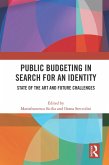Although the triggering effect of economic crises on revolt is a classic sociological topic, crises have until recently mostly triggered large-scale collective action in developing countries. The antigovernment protests that occurred in several European countries in the aftermath of the global financial crisis brought crises to the forefront of collective action research in democratic societies, as well as provide important opportunities for studying how crises can trigger large-scale collective action. This volume focusses on Iceland's 'Pots and Pans Revolution', a series of large scale antigovernment protests and riots that took place in Iceland in autumn 2008 and January 2009. The Icelandic case offers a rare opportunity to study processes that can trigger political protest in an affluent, democratic society. The protests took place in the aftermath of a national financial collapse triggered by the global financial crisis in early October 2008. While having almost no tradition of mass protest, Iceland was among the first countries to respond to the global crisis with large-scale protest. The level of public mobilization was exceptionally high (about 25 percent participation rate) and the protests did not stop until they had brought down the ruling government of Iceland. Using qualitative and quantitative data, this volume situates the protest in historical-cultural context and applies social movement theory to explore how the economic crisis ended up triggering the protests, thus providing a step toward understanding why the global financial crisis has triggered public unrest in other countries.
Dieser Download kann aus rechtlichen Gründen nur mit Rechnungsadresse in A, B, BG, CY, CZ, D, DK, EW, E, FIN, F, GR, HR, H, IRL, I, LT, L, LR, M, NL, PL, P, R, S, SLO, SK ausgeliefert werden.









